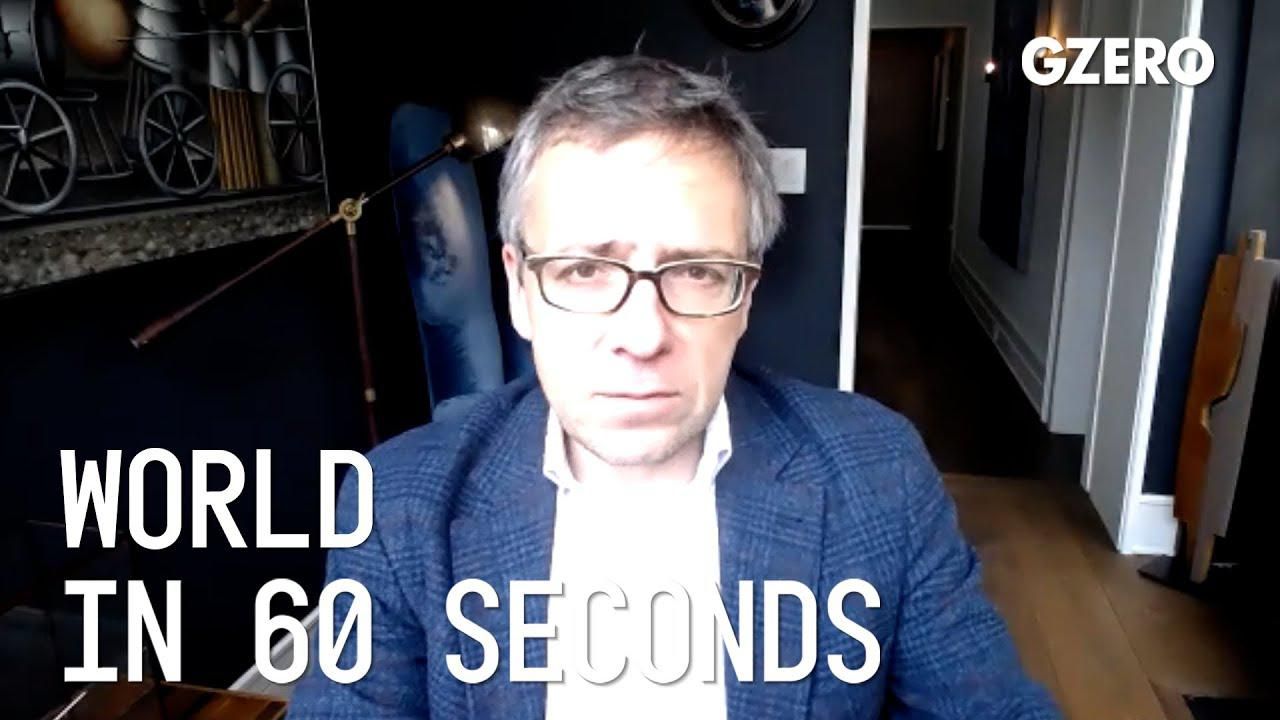Ian Bremmer answers this week's questions on the biggest stories in global politics:
The United States says it will now donate 60 million COVID doses. Who are they going to?
Well, they're not COVID doses, because we don't want to give people coronavirus. They're vaccines. It's AstraZeneca, which we don't need in the United States. We haven't even approved yet. They are somewhat less effective than Moderna and Pfizer, but they're damned effective and you should take them, and they're going almost exclusively to India. And that is fully appropriate because India, we know about 350,000 cases a day. In reality, if you look at the positivity rates and level of disclosure, it's probably five to 10x that. This is by far the largest epicenter of the coronavirus crisis to date in the world. But they're not going to be getting these doses until probably June. And meanwhile, they're under very serious trouble right now. And there's a lot of recrimination, central government, local governments. The US has been slow. We should've made this announcement frankly a month ago, but I'm glad we're doing it.
Should Macron be concerned about the rise of the right a year out from election in France?
He should be a little concerned because his approval ratings are horrible on the back of the gilets jaunes crisis, and now you've got the coronavirus crisis and yeah, he's not doing well. But that doesn't mean that he's going to lose. He is behind in polls right now to Marine Le Pen a little bit, but in the second round, everyone that isn't pro Le Pen is against Le Pen, and he gets all of those votes and Le Pen gets the core Le Pen votes and she loses. And that is almost certainly what is going to happen. So I wouldn't be all that worried, even though the far right in France, on the back of a lot of Islamic extremism and recent attacks, a lot more than the United States, is a problem.
Is the EU ready to welcome American tourists back? What will that look like?Well, I mean, they're ready to start opening borders to American tourists. There will be vaccine passports certainly, will require that you show that you've had a vaccine, at the very least, that you have a negative test, and Americans will be able to travel to Europe. And I think that's a big deal. About 80% of the countries in the world right now the US is not recommending travel to, and the developing world, much of it around the world is going to take a lot longer to roll out effective vaccines, and never mind herd immunity, just get to the point that you don't have these massive spikes in cases, South America, South Asia, Southeast Asia, India, as I already mentioned. Europe is about two to three months behind the United States. They need the tourism, they need the money. They're going to open the borders, and Americans will be able to travel, showing that they are either immune through vaccine or have taken a negative test. And so we'll get there, and hopefully we'll get a little closer as a consequence.
More For You
At the 2026 Munich Security Conference, entrepreneur and Project Liberty founder Frank McCourt makes the case that the internet, and the AI systems rapidly reshaping it, must be redesigned to serve people, not platforms.
Most Popular
At the 62nd Munich Security Conference, Parag Khanna, founder and CEO of AlphaGeo, says globalization isn't dead, it's evolving. Speaking with GZERO’s Tony Maciulis, he explains that countries are forming flexible alliances that expand and shrink based on their interests. “You’d rather be in the tent...if it suits your interest than not in it,” Khanna notes, highlighting how the US, Europe, and Asia are adapting to shifting global priorities.
Sovereignty has become one of the most powerful, and least defined, words in tech policy. At the 2026 Munich Security Conference, SAP global head of government affairs, Wolfgang Dierker, explains why governments and enterprise customers are demanding more control over their data, cloud infrastructure, and AI systems amid rising geopolitical uncertainty.
On the sidelines of the 2026 Munich Security Conference, Annemarie Hou, Executive Director of the United Nations Office of Partnerships, joined Tony Maciulis to discuss the power of women leaders in global decision-making.
